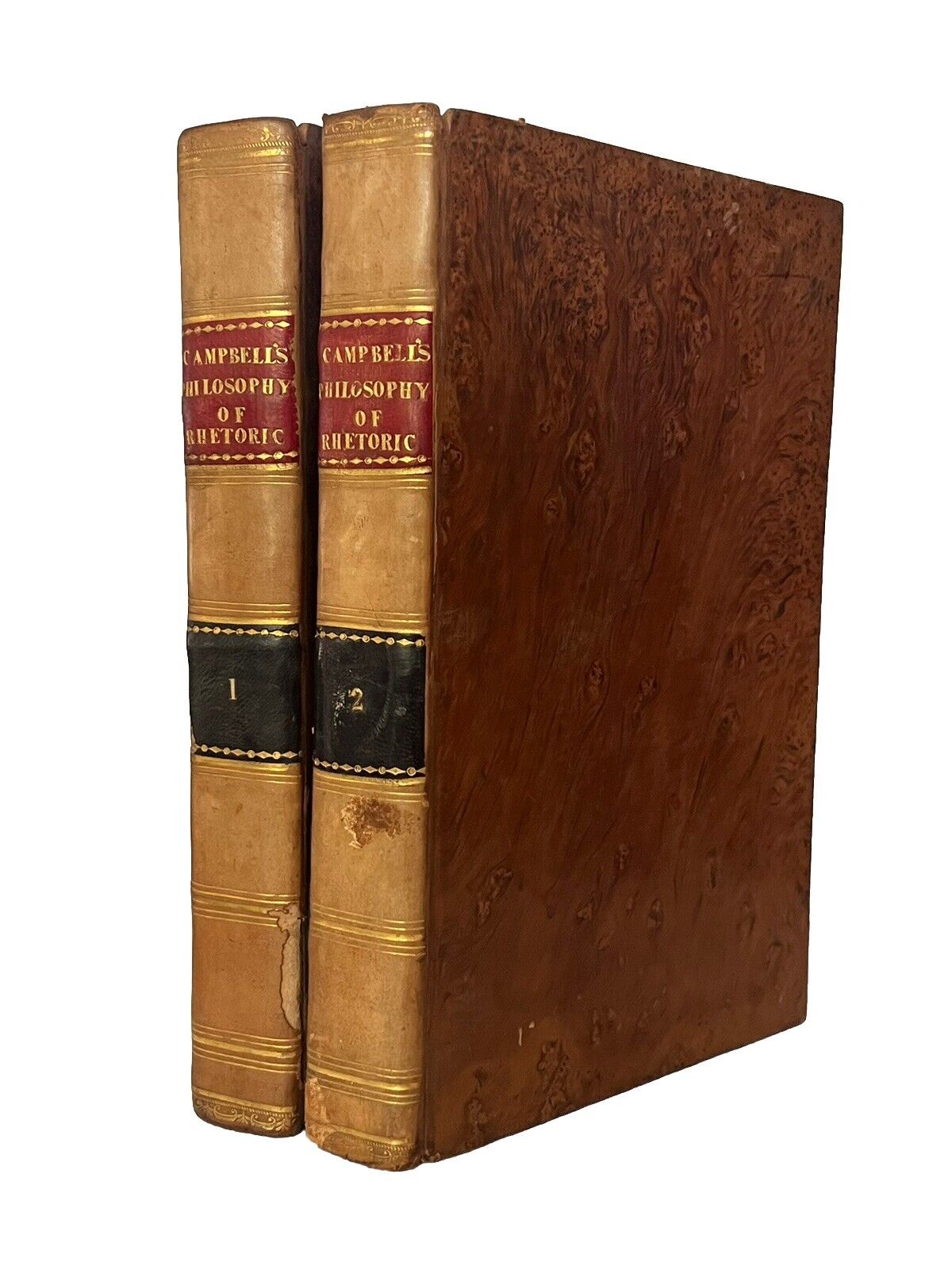The Philosophy of Rhetoric by George Campbell 1816
The Philosophy of Rhetoric by George Campbell 1816
Couldn't load pickup availability
The Philosophy of Rhetoric. By George Campbell, D.D. F.R.S.Edin. A New Edition, with the Author's Last Additions and Corrections. In Two Volumes. Edinburgh: Printed by Neill & Co., for Archibald Constable & Co., and John Fairbairn; and T. Cadell and W. Davies, 1816.
-------------------
Campbell embraced the philosophical empiricism which John Locke established in An Essay Concerning Human Understanding. Following the example of Locke's humanistic sciences, Campbell set forth an analysis of rhetoric through the scope of mental faculties. He believed that a rhetoric grounded in empiricism would become efficient because of the incorporation of the cognitive processes. The human senses are the basis for the validity of belief; thus a rhetorical theory based in faculty psychology would establish that rhetoric is capable of making a reader experience a concept with the same "vivacity" and automaticity as that of the senses.
Campbell, like most theorists of the Enlightenment, believed in a universal human nature: the "general principles [of taste] are the same in every people". He gives the example of tropes and figuration which "are so far from being the inventions of art, that, on the contrary, they result from the original and essential principles of the human mind". This facet of human nature has remained constant throughout history so it must be universal trait. Based on premises similar to this, Campbell claimed that human beings act according to clear and obvious motives and rhetoric should be, in turn, directed towards similar operations of the mind.
To persuade effectively, Campbell believed that the orator should adapt his or her discourse to the needs of the audience, for as he states: "whatever be the ultimate intention of the orator, to inform, to convince, to please, to move, or to persuade, still he must speak so as to be understood, or he speaks to no purpose". He classifies the needs of the audience into four different categories:
Understanding: Elucidating a subject by explanation and proof
Imagination: Exciting admiration by style, resemblance, detail, and sublimity
Passions: Involving, motivating, associating images
Will: Persuading to action by combining argumentation with vivacity
The purpose of discourse is derived from the powers of the mind to which they appeal (understanding, imagination, passions, will), rather than the classical three, which are based on the public purpose of oration. The classical categories are the demonstrative, to praise or blame; the deliberative, to advise or dissuade; and the forensic, to accuse or defend. In considering each of these, Campbell believes that not only understanding and memory of the audience must be taken into account, but the orator must as well provide particular attention at stimulating their passions. To incorporate this was as an obvious concern for Campbell, who believed that effective preaching must be measured by its effects on the audience.
-------------------
Size: 140 x 216 mm (approx.)
Condition:
[t.p., iii-xvi, 429pp.]; [t.p., iii-vi, 420pp.]
Full tree-calf with two tooled labels to each spine between tooled bands. Bindings rubbed and scuffed, more so in places with some loss of leather. All boards attached with rubbing along joints. Shelf and edge wear. Brown spotted page edges. Text block fairly clean with foxing and occasional marginalia.
[OCLC 4694747].


